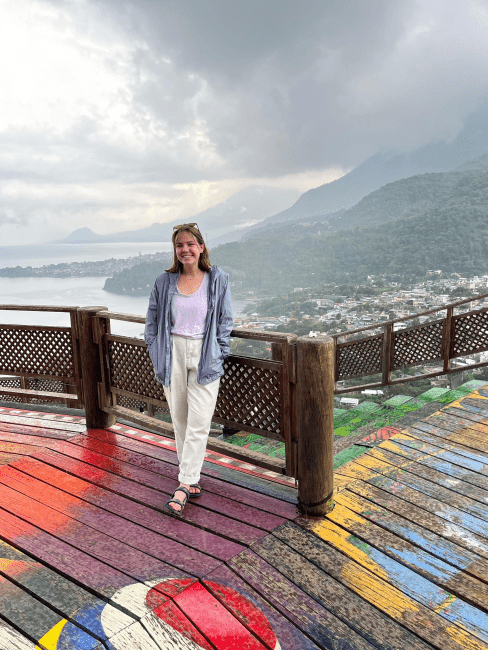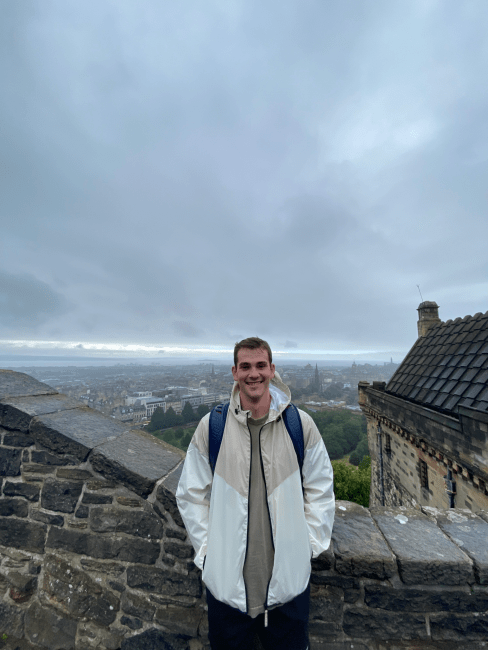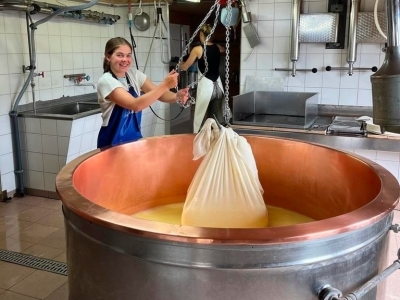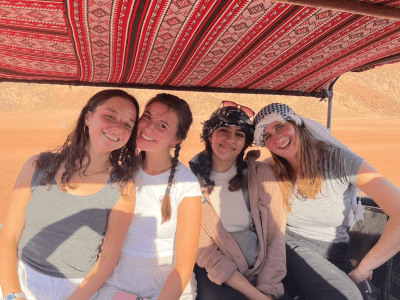Research Grants
A Dean Rusk Research Grant is defined as a systematic inquiry that is designed to discover and interpret new information.
Applying for the Grant
For this grant, each student is required to complete the following steps:
- Consult with the Dean Rusk office to discuss your project proposal.
- Obtain a faculty recommender.
- If applicable, obtain a language proficiency recommender (required where English is not the predominant language in the country for your proposed project).
- Submit your IRB application one calendar week before the Dean Rusk application deadline.
- Write a proposal.
- Complete travel grant budget report.
Writing Your Proposal
A strong Research Grant proposal includes:
- What is the topic of the research you wish to conduct?
- How does your work build upon and potentially improve existing research on the subject?
- How will the proposed research serve as the basis for a capstone project, thesis, or future research?
- Why does your proposed research need to be conducted internationally and cannot be completed on campus?
- Why must you complete this research at this time?
- Clarify any specifics about why this location, itinerary, accommodation, and method of travel.
- How will the proposed research help you better understand an aspect of yourself or your interests, whether academic or career-related?
- What specific methods do you plan to follow to accomplish your research?
- What resources, documentation, or permissions will you need, and how will you obtain them?
- What experiences and coursework, including methods, have prepared you for the research you are proposing?
- Do you have specific expertise, such as language proficiency or research experience, that will assist you in this project?
- If there is a language barrier to consider, how will you prepare to mitigate it?
- What considerations are important regarding personal and social responsibility while engaging in this project?
- Can you complete the proposed tasks with the requested budget and within the proposed time frame?
- What are your plans for presenting your research, including sharing it on campus and with the broader community, in an accessible way?
- How will personal reflection be highlighted during your project, and how will you connect your research experience back to Davidson and/or the classroom?
Deadline
Summer 2025 Research Grants application is now open. Application deadline is February 1, 2025.
To start your application, use this link.
Recently Funded Research Grants

Empowerment through Community: Maya Women's Participation in Evangelical Religion in Guatemala
Maggie Kinton ‘24 conducted fieldwork in the Guatemalan Western Highlands to explore the economic and religious experiences of Maya Mam women, one of the largest Indigenous Maya groups. Her senior honors thesis in anthropology, titled "Todas Estamos Siguiendo Adelante: How Mam Maya Women Generate Movement Towards a Good Life Through Textile Work and Religious Participation," aimed to examine how their participation in textile cooperatives and evangelical religion influences their identity and empowerment.

Anstey Inorganic Chemistry Research
Matthew Weber ‘25 joined Prof. Mitch Anstey's research team to explore battery chemistry for large-scale energy grids. In collaboration with the University of Kent, they focused on designing inorganic molecules to enhance battery efficiency and durability. Their goal is to address the inefficient utilization of renewable energy by developing batteries capable of storing it effectively.

Government Policies and Effects on Gold Mining Communities in Kakamega, Kenya
Scout Yokley ‘24 traveled to Kakamega, Kenya, to investigate the impacts of government policies on gold mining communities. Her research involved conducting interviews within these communities and developing an economic model that integrates environmental considerations. The goal of her research project was to assess how government policies affect the socio-economic dynamics of these communities reliant on gold mining.

